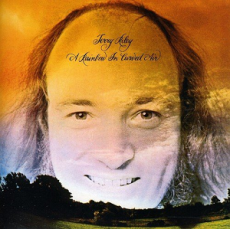
Daily Dose Of Jazz…
Terrence Mitchell Riley was born in Colfax, California on June 24, 1935 and grew up in Redding, California. In the 1950s, he began performing as a solo pianist and studied composition at San Francisco State University, the San Francisco Conservatory, and the University of California Berkeley, studying with Seymour Shifrin and Robert Erickson.
Befriending minimalist omposer La Monte Young, together they performed Riley’s improvisatory composition Concert for Two Pianists and Tape Recorders in 1959–60. Riley later became involved in the experimental San Francisco Tape Music Center, working with Morton Subotnick, Steve Reich, Pauline Oliveros, and Ramon Sender. Throughout the 1960s, he also traveled frequently in Europe, taking in musical influences and supporting himself by playing in piano bars. He also performed briefly with the Theatre of Eternal Music in New York in 1965-1966.
His most influential teacher was Pandit Pran Nath, a master of Indian classical voice who also taught La Monte Young, Marian Zazeela, and Michael Harrison. Riley made numerous trips to India over the course of their association to study and accompany him on tabla, tambura, and voice. In 1971 he joined the Mills College faculty to teach Indian classical music. Riley also cites John Cage and “the really great chamber music groups of John Coltrane and Miles Davis, Charles Mingus, Bill Evans, and Gil Evans as influences on his work.
His long-lasting association with the Kronos Quartet began around 1980 and throughout his career Terry composed 13 string quartets for the ensemble. in addition
Organist, pianist, saxophonist and tamburist Terry Riley, who teaches both as an Indian raga vocalist and as a solo pianist, continues to perform live.
More Posts: bandleader,history,instrumental,jazz,keyboard,music,organ,piano,saxophone,tambura
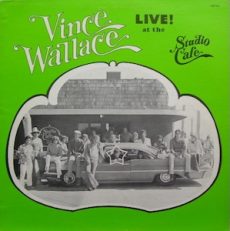
Daily Dose Of Jazz…
Vince Wallace was born on June 15, 1939 in Port Townsend, Washington. At just two months shy of his second birthday his mother moved him to San Joaquin Valley, California. After spending a little time there, they ended up settling and growing up in the Bay area of Oakland, California.
His earliest recordings were on the Black Jack Wayne label in 1953 with Screamin Mel Dorsey and Chuck Wayne and the Heartbeats. These sessions were along with his original instrumental, Funky. He performed regularly at this time at the Country and Western halls and go go bars of Niles, California alongside Rose Maddox, Johnny Cash, and the Black Brothers.
As he developed, he became more sought after at all hours jazz joints where he sat in with Eric Dolphy, Paul Chambers, Charles Mingus, Pony Poindexter, Art Blakey and Smiley Winters. Jimbo’s Bop City in San Francisco was the best place around, where every night after 2 a.m. another legend of the jazz would come through the door.
In 1958 Vince moved to Southern California where he picked up work with Paul Bley and Marvin Rainwater. His Sunday jam session at The Cascades Club in Belmont Shores, helped the emergence of Kent Glenn, Mark Proctor, Gene Stone, and Warren Gale. By 1966 was back in the Bay Area working with alto saxophonist Norman Williams at the JukeBox in San Francisco. Through 1970 Wallace recorded three albums with Little John, a fusion rock band on Epic records.
Drawn back to southern California he experienced some of his widest recognition as his featured performances were reviewed favorably by Gerald Wilson.. This led to an eventual run at the Studio Cafe, and the release of two of Vince’s solo albums on Amp Records. Returning to San Francisco he led a Sunday night jam session through the Nineties, receiving the San Francisco Bay Guardian Award for Best Jam Session in 1995.
With a surge of interest in his music in the new millenium, he started working at the Bulldog Coffee Shop in Oakland and reuniting with Bishop Norman Williams, Prince Lasha, Jim Grantham, Steve Heckman, Fred Randolph, Chuck Thomposon, Chris Amberger, Terry Rodriguez, and John Gilmore, just to name a few. He began working on his memoirs, created a website, took a Friday residency at Cafe Van Kleef, appeared on KCSM 91.1 FM, and recorded a new album with Larry Vuckovich.
Tenor saxophonist Vince Wallace has reestablished himself as one of the most sought after saxophonists around and his music will undoubtably be spread throughout the world via his website www.vincewallace.com.
More Posts: bandleader,history,instrumental,jazz,music,saxophone
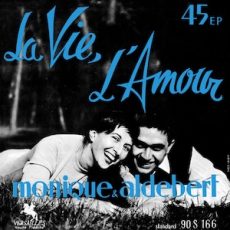
Daily Dose Of Jazz…
Louis Aldebert was born on June 8, 1931 in Ismailia, Egypt. He studied both singing and piano after his family moved to Paris, France and became efficient enough on the latter instrument to gig with tenor saxophonist Don Byas in the mid-1950s. Several years later he played with violinist Stephane Grappelli of Hot Club fame.
Having a career as a singer, he worked with the Blue Stars in the mid-’50s. From 1959-1965 he was a member of the Double Six, a kind of experiment in overcrowding via scat singing. Needless to say, this attracted the attention of Jon Hendricks who made use of Aldebert on a 1965 session.
He married singer Monica Dozo, and after feeling a bias as Byas bandmates, she changed her name to Monique Aldebert-Guerrin. She was part of the rotating Double Six recording cast when some members needed to recover from nagging earaches.
Leaving the Double Six, Byas’ group and the French jazz scene in 1967, the couple moved to America. They initially settled in Las Vegas, Nevada before heading West to Los Angeles, California. They had their own group and did freelance studio vocal work in various capacities, one highlight being a feature on a 1979 side by the Crusaders.
Vocalist, pianist and composer Louis Aldebert, who with his wife collaborated as composers of original songs as well as vocal arrangements of various jazz standards, died on October 10, 2014 in Los Angeles.
More Posts: composer,history,instrumental,jazz,music,piano,vocal
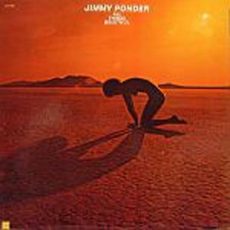
Daily Dose Of Jazz…
Barron W. “Barry” Rogers was born on May 22, 1935 in The Bronx, New York descended from Polish Jews whose name was originally Rogenstein, and was raised in Spanish Harlem. His father and several of his uncles sang in a choir and his mother taught in Africa and Mexico, inspiring an interest in music from other nations. Mambo and jazz were popular in his neighborhood.
As a student of jazz trombonists Jack Teagarden, Lawrence Brown, and J. C. Higginbotham’s playing, he began performing Latin music in the mid-1950s and would be most associated with it from then on. He developed his style while working with Eddie Palmieri, and Willie Colón regarded Rogers as his strongest musical influence and would feature him in many of his productions. Bobby Valentín would feature Rogers in his song El Jíbaro y la Naturaleza, which led Marvin Santiago to nickname him El Terror de los Trombones for the record.
Rogers worked with Israel “Cachao” López, Machito, Manny Oquendo, Celia Cruz, Tito Puente, Cheo Feliciano, Johnny Pacheco, Chino Rodríguez, and the Fania All-Stars. He was a founding member of the band Dreams with Michael Brecker, Randy Brecker, and Billy Cobham. He also worked with George Benson, David Byrne, Ron Carter, Aretha Franklin, Don Grolnick, Bob James, Elton John, Chaka Khan, Bob Moses, Todd Rundgren, Carly Simon, Spyro Gyra, James Taylor, Jimmy Ponder and Grover Washington Jr. as well as others too numerous to name in pop, r&b and rock genres.
Trombonist Barry Rogers, who performed in the jazz and salsa mediums, died suddenly in Washington Heights, Manhattan at the age of 55 on April 18, 1991.
More Posts: history,instrumental,jazz,music,trombone
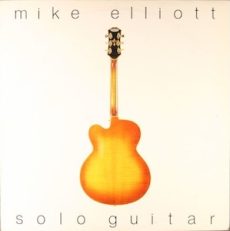
Daily Dose Of Jazz…
Mike Elliott was born on May 18, 1940 in Chicago, Illinois to a studio musician father and a blues singer mother. Raised in Colorado he learned guitar at a young age and was playing professionally by the time he was sixteen. It was in Colorado where he studied guitar with Johnny Smith.
He formed his first jazz group and in 1964 was on the road. He moved to Minneapolis, Minnesota two years later, and in the Seventies he helped found the jazz fusion group Natural Life, which included saxophonist Bob Rockwell, bassist Billy Peterson, pianist Bobby Peterson, and drummers Bill Berg and Eric Kamau Gravatt.
The 1980s saw him moving to Nashville, Tennessee and becoming manager of Gibson Professional Musical Services and holding clinics with Les Paul, Howard Roberts, and Elliot Easton. Mike did session work, engineering, producing, arranging, and songwriting. In the middle of the decade he teamed up with songwriter musician Jim Pasquale to form Magic Tracks Recording Studio.
Remaining in Nashville until 1998 he worked with Johnny Cash, Mickey Newbury, Chubby Checker, Emmylou Harris, Trisha Yearwood, Joe Diffie, Earl Klugh, Vic Damone, Steve Earle, Crystal Gayle, and Tennessee Ernie Ford.
Gruitarist Mike Elliott died on September 14, 2005. A Mike Elliott Scholarship Award for excellence in guitar was established in his honor.
More Posts: bandleader,guitar,history,instrumental,jazz,music



